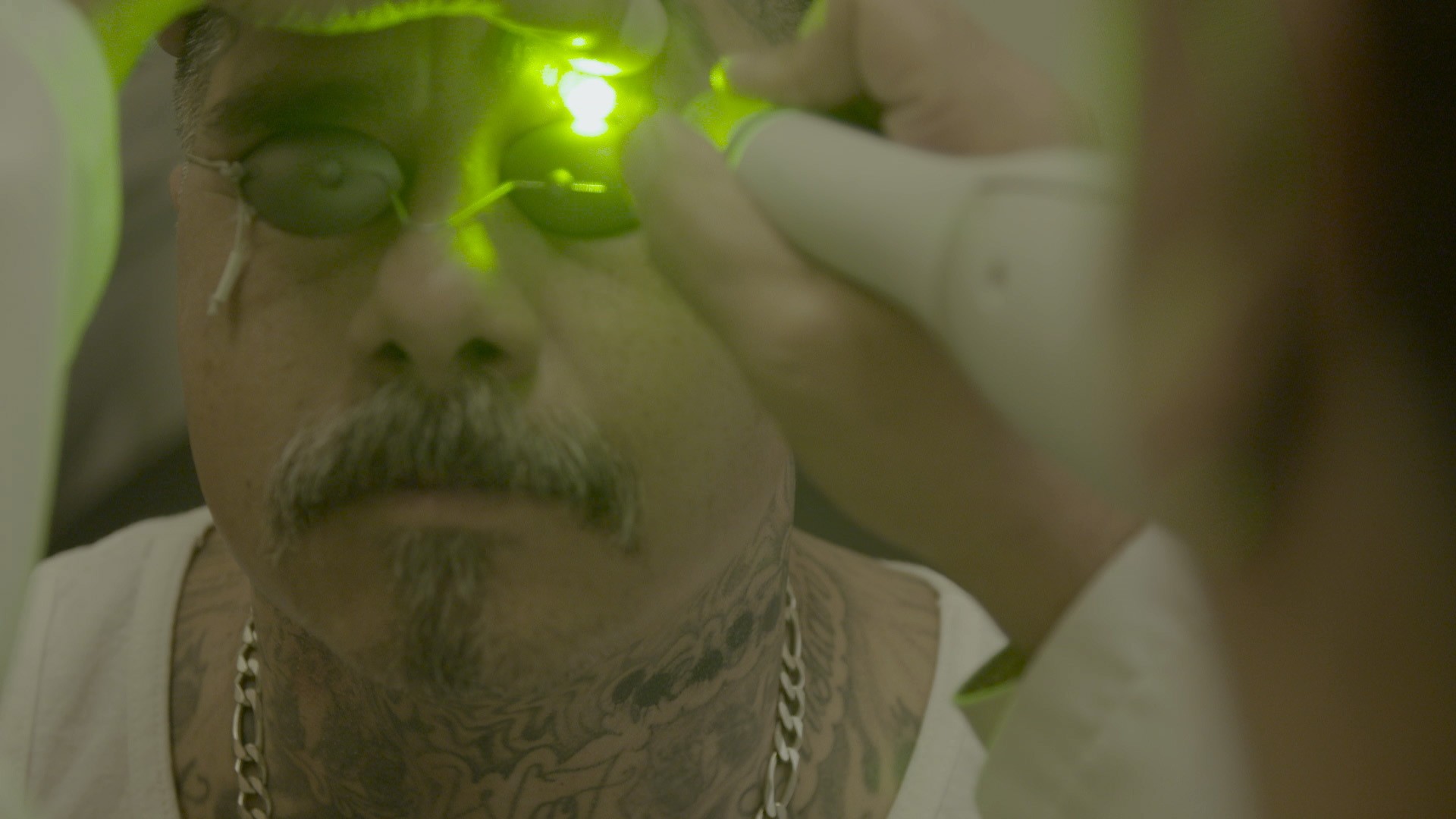Photo courtesy of Amazon Prime
Alongside his headlining set at Coachella this weekend, Donald Glover released his latest project, Guava Island, a short musical film co-starring Rihanna, Letitia Wright, and Nonso Anozie. On a surface level, the film is a beautifully directed, tropical set, nostalgia-inducing piece that so happened to have Glover’s musical alter ego, Childish Gambino’s music soundtracking the story. But by its finish, the folktale-esque feature provoked endless conversation relating to its underlying theme: The prevalence of significant Black cultural deaths and how affected communities move forward. At its base, the film is a love story that details the long-term relationship between Kofi (Rihanna) and Deni (Glover)—Kofi is a sweet and sassy island girl who longs to leave Guava Island — a fictional, once flourishing community turned into a dictator run regime. Deni is a joke cracking, passionate musician who looks past the politics of the island and hopes his music, and the upcoming festival he’s producing, will unite Guava Island to feel the joy of life again.Viewers quickly piece together the film’s melancholic narrative in comparison to today’s Black cultural tragedies—most notedly, how Deni’s death and the island’s outpouring of celebratory grief, eerily mirrored the recent passing of Los Angeles rapper and community activist Nipsey Hussle and the admirable poise mid grief of his girlfriend, Lauren London.
At its base, the film is a love story that details the long-term relationship between Kofi (Rihanna) and Deni (Glover)—Kofi is a sweet and sassy island girl who longs to leave Guava Island — a fictional, once flourishing community turned into a dictator run regime. Deni is a joke cracking, passionate musician who looks past the politics of the island and hopes his music, and the upcoming festival he’s producing, will unite Guava Island to feel the joy of life again.Viewers quickly piece together the film’s melancholic narrative in comparison to today’s Black cultural tragedies—most notedly, how Deni’s death and the island’s outpouring of celebratory grief, eerily mirrored the recent passing of Los Angeles rapper and community activist Nipsey Hussle and the admirable poise mid grief of his girlfriend, Lauren London.
Advertisement

At the close of Guava Island, Red (Anozie), the dictator who ordered Deni’s assassination, watches in disbelief as all of his workers sing and dance during a funeral procession for Deni. Then a vibrant blue-veiled Kofi, turns to demand Red's gaze—no tears evident on her face—and says to him, “We finally got our day.” Rather than Red’s hope of killing dreams of a better future on the island with Deni’s murder, his crime encouraged the islanders to continue Deni’s legacy and take back the freedom they deserved.
The death of Nipsey Hussle echoed a similar sentiment. When news broke of the rapper’s death outside of his own Marathon Clothing boutique, the Crenshaw community cried together, but also never failed to continue to push Nipsey’s mission of service. Days after his passing rival gangs in the Los Angeles community got together to form a peace treaty to end the ongoing violence in the city—where in the week before Hussle's death, 26 people had been shot and ten people killed, as noted by LAPD. When addressing family, loved ones, and fans at his memorial service at the Staples Center last week, London calmly and courageously assured the audience that no matter how heavy the pain was “the marathon continues,” pulling from the title of his last album Victory Lap.Death is an unwanted frequency within the Black community, and if anything, it’s a pattern of tragedy that’s become too uncomfortably familiar as of late. Sometimes, the only positive outcome of a death, and especially after the passing of figures that Black communities hold near, is the reminder of one’s legacy and how we have to uphold our stories and memories and standards for future generations to come. Characters like Kofi and real women like London, serve as symbols of Black resilience—representing that though the fight for our lives is seemingly never over, we have to remember and take notice of our joy and resilience, when we’re still standing.